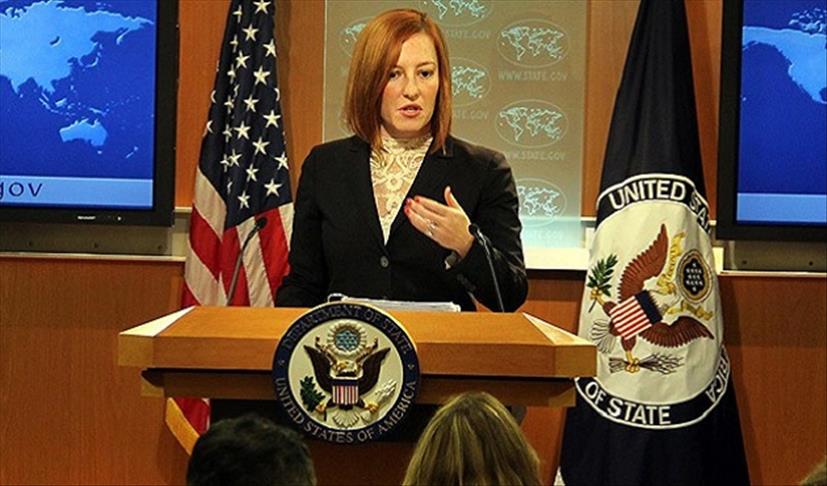
WASHINGTON
The Obama administration is seeking a non-binding agreement with Iran on the Republic's nuclear program in order to have flexibility with Congress and international law, according administration officials on Wednesday.
As the deadline approaches for formulating a framework for the nuclear deal between Iran and the P5+1 -- the U.S., the China, France, Russia, the U.K., plus Germany -- the debate about the legal character of the deal gains momentum in the U.S.
U.S. officials say a deal with Iran will not be binding and thus will provide the administration flexibility in its actions against Iran as well as sparing the administration from congressional blockage.
The overriding reason for the administration to prefer a “non-binding arrangement” to a “binding treaty” is the need to “preserve the greatest possible flexibility to re-impose sanctions," said State Department spokeswoman Jen Psaki.
A binding deal will create obligations on the parties under international law and violations of any obligation will require a legal process at the International Court of Justice and other international organizations including the UN Security Council.
A non-binding instrument carries significant moral or political commitments rather than obligations and is not subject to international law that allows for parties to take action against violators of a deal.
Psaki said a non-binding arrangement would provide flexibility to reapply sanctions in a "faster manner.”
She also provided historical examples where the U.S. pursued international security initiatives through non-binding arrangements.
“In the arms control and non-proliferation area alone, some representative examples include the U.S.-Russia deal to remove chemical weapons from Syria, the proliferation security initiatives and nuclear supplier group guidelines,” she said in reference to accords regarding nuclear proliferation and weapons of mass destruction.
The administration’s preference for a non-binding deal, besides having a lot to do with international law, also opens the door for it to bypass congressional approval.
Particularly, congressional Republicans have been at odds with the White House about Iran negotiations.
Early this week a group of 47 Republican senators wrote a letter to Iranian leadership in which they said any nuclear deal reached between the U.S. administration, world powers and Tehran, could be reversed.
The letter stressed that without congressional approval a deal with Iran would not be binding.
By arranging a non-binding agreement, the administration could bypass approval from Congress.
“We're not negotiating a, quote, ‘legally binding plan.’ We're negotiating a plan that will have in it a capacity for enforcement,” Secretary of State John Kerry told the Senate Wednesday. “The senators' letter erroneously asserts that this is a legally binding plan.”
He said treaties obviously require the advice and consent of the Senate but the vast majority of U.S. international arrangements do not as they are signed as non-binding documents such as memorandums or accords rather than binding documents such as treaties or agreements.
Anadolu Agency website contains only a portion of the news stories offered to subscribers in the AA News Broadcasting System (HAS), and in summarized form. Please contact us for subscription options.







